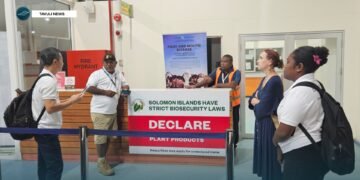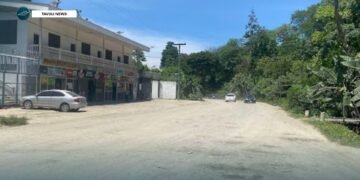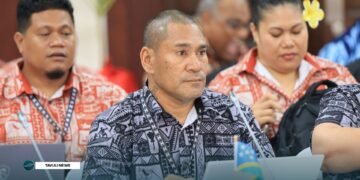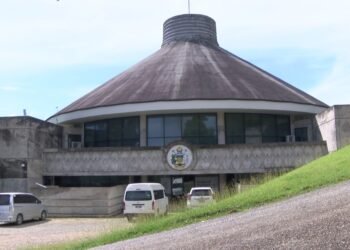80% of returning Solomon Islands workers face unemployment and difficulty matching new skills to local jobs.
Upon returning to the Solomon Islands, 80% of migrant workers found themselves unemployed, facing significant challenges reintegrating into the local workforce. Despite gaining valuable skills abroad, over half of the returnees were unable to secure jobs that aligned with their new qualifications, highlighting a gap between international experience and local employment opportunities.
A recent report, funded by the Labour Mobility for Sustainable Development and Climate Resilience in the Pacific project, revealed that workers also faced serious issues during their time abroad. 41% reported being subjected to workplace mistreatment, including unpaid wages and substandard accommodation. 20% of migrant workers struggled to access healthcare, often due to inadequate workplace insurance.
The study, which collected data from Solomon Islanders across various destinations, further highlighted the difficulties workers encountered with contract terms. Nearly a third of respondents experienced changes to their employment agreements while abroad, often without consultation or prior notice. Additionally, 22% expressed frustration over the lack of clear information regarding their salary and working conditions before departure.
Experts are urging for reforms to improve the experience of migrant workers, including more comprehensive pre-departure training, better enforcement of employment contracts, and greater support for returning workers. They also call for increased assistance in job placement and small business creation to ensure the benefits of labor migration are sustainable.
A shift toward a family-focused pre-departure orientation could provide essential support for migrant workers and their families. The survey revealed that 73% of respondents were in relationships, with 63% having children, and 75% made the decision to migrate collectively with their families. However, nearly a quarter (24%) of those in relationships reported that their relationships deteriorated or ended after migration, reflecting the strain migration can have on family dynamics.
The experience of migrating for work is fraught with challenges, especially when it comes to the terms of employment. More than one-third (38%) of respondents reported facing non-work-related challenges, including loneliness, isolation, and difficulties maintaining relationships with their partners and families back home.
Efforts to improve pre-departure preparation are crucial, especially in rural areas where accessing migration-related information remains a challenge. Residents of provinces like Makira, Temotu, and Western reported higher difficulty in accessing this information compared to those in urban areas, with migration costs also being higher in these provinces.
Despite many migrants learning valuable skills abroad, over 40% reported unemployment upon returning home, with more than half struggling to secure a livelihood. The lack of support for reintegration is evident, as only a small percentage (3%) received assistance or information regarding small business creation or job opportunities in the Solomon Islands.
Moreover, a significant portion of respondents reported confusion or a lack of clarity about their employment terms prior to migration. Even after departure, many migrants found that their contracts were not fully honored by employers. A troubling 41% of respondents felt they were treated unfairly at work, and numerous complaints were lodged about substandard accommodation and wage deductions that were not part of the agreement.
In terms of support, while services were available to workers facing challenges abroad, a lack of responsiveness and insufficient qualifications among support staff led to a low rate of issue resolution, with only 27% reporting their challenges were fully addressed.
Health access also remains a concern. One in five migrants encountered difficulties accessing healthcare in their host countries, with many facing high costs due to inadequate workplace insurance coverage.
The survey’s findings emphasize the need for improved preparation, better information provision, and more comprehensive support systems both for migrant workers while abroad and upon their return to the Solomon Islands. Regularly updating policies based on migrant experiences can ensure these challenges are better addressed moving forward.
Key Recommendations:
- Adopt a family-focused pre-departure orientation model for migrants.
- Improve information access for rural and provincial migrants.
- Enhance understanding of employment terms before migration.
- Increase monitoring of employer adherence to contracts.
- Strengthen support systems for migrant workers, especially regarding health and reintegration.
As labor mobility remains a key strategy for economic development in the Solomon Islands, the report ‘Returned Migrant Workers in Solomon Islands’ highlights the need for stronger protections and policies to safeguard the rights and welfare of migrant workers.














































































